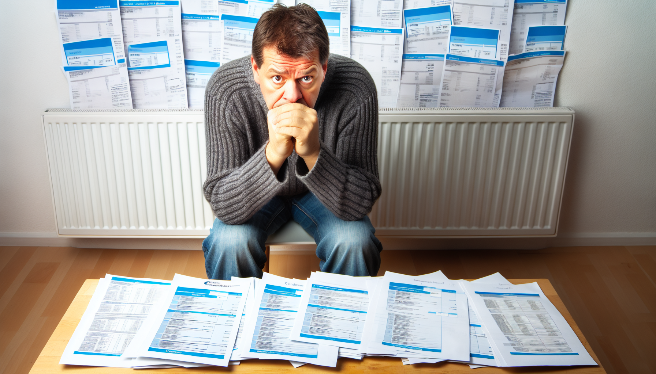Bad credit—it’s like the annoying buzz of a mosquito in your ear, but instead of a quick swat, you’re dealing with the lasting sting of financial missteps. When it comes to utilities, having a not-so-great credit score can make what should be simple transactions a bit more complicated. Let’s break down how your credit score can play a big role in your monthly bills.
1. Deposit Demands
Moving into a new place? Exciting times! But here’s the kicker: utility companies, like electric and water suppliers, might check your credit history. If your credit’s blemished, they might be worried about your ability to pay your bills on time. The result? They ask for a deposit – and not just a token amount, but potentially a hefty one – which is like collateral for them. It’s their way of making sure they don’t get burned if you, well, fail to pay the bills.
2. Higher Payments Ahead?
Now, if you’re stuck with a lower credit score, you might be faced with higher monthly payments. Some utility companies have a tiered system where folks with better credit scores get charged less each month. It’s not common practice everywhere, but it does happen. Better credit can equal fewer bucks out the door each month.
3. Limited Payment Options
Choice is good, right? But if your credit score is on the rocks, your utility company might not see it that way. Where a solid credit score might get you the freedom of various payment plans or even incentives for timely payments, a lower score may strip those choices away, leaving you with less flexible payment options.
4. Risk of Service Disruptions
Here’s a no-brainer: pay your bills, keep your lights on. But for those whose credit scores have taken a hit, utility companies might be quicker to shut off your services if you miss a payment. It’s a harsh reality, but one late payment could leave you in the dark, literally, much faster than it might for someone with a credit score that gleams.
5. The Long-Term Ripple Effect
Your utility accounts might not automatically report your payment history to credit bureaus, but if you end up seriously delinquent, you bet they will. This means that if you’re late on your utility bills, it can make a bad credit situation worse, perpetuating a cycle of credit struggle. It’s crucial to keep those payments coming on time to prevent your credit score from sliding further down the slope.
6. Relationships with Service Providers
People prefer doing business with those who have a track record of reliability, which includes utility companies. If your credit is poor, it can sour the relationship right from the start, making interactions more stressful. Maintaining a good credit score can ensure smoother relationships with service providers and pave the way for negotiations and better service in the future.
Steering your way through the financial thicket isn’t always straightforward, especially with a less-than-perfect credit history. Yet understanding the stakes with something as everyday as your utility bills can be a powerful motivator to manage your finances wisely. While bad credit can cast a shadow over your utility management, it’s a reversible situation. Stay informed, make smart decisions, and keep those payments punctual. Here’s to regaining financial freedom, one bill at a time!


